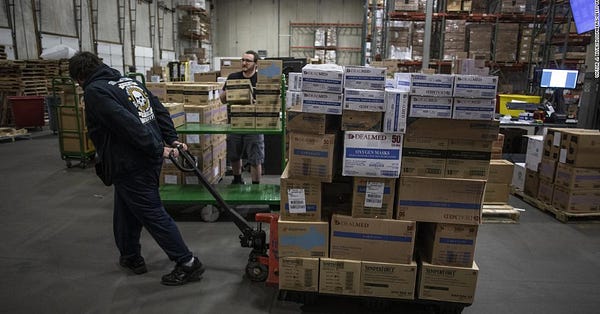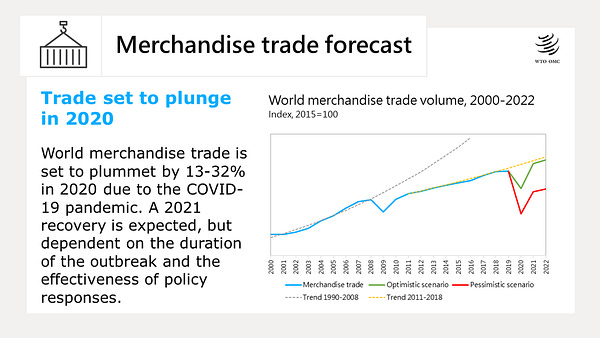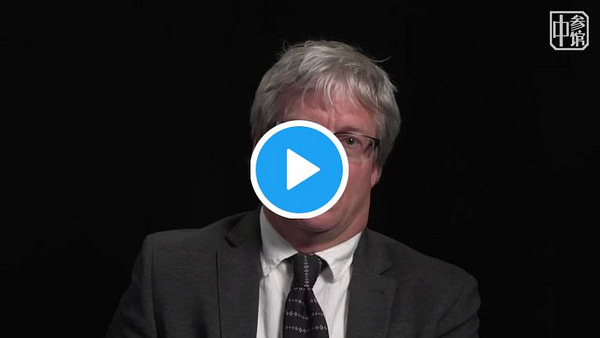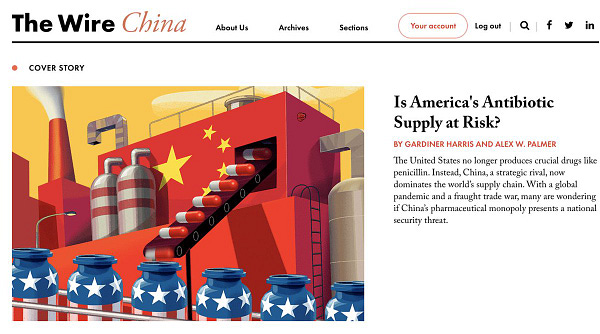Even as China’s reported COVID-19 infections and death numbers continue to reach new lows and its government touts its success in tamping down the virus and restarting its businesses, there are serious problems emerging in China right now. Hundreds of thousands of companies have been shut and millions of people are out of work in the aftermath of the coronavirus-induced shutdown of its economy.
Countries and companies that have been hoping China would be an engine for global growth, even as the rest of the world reels, are likely to be disappointed, as its economy shows real signs of weakness. This argument is made by yours truly in my new piece in Foreign Affairs.
China’s economy … on a course to stall
“Will China be a lone bright spot as other major economies struggle with the virus in the months ahead? And when the crisis finally ends, will China resume its role as the major driver of global growth, boosting the fortunes of multinationals once again?” asks Dexter Roberts in Don’t Count on China to Lift the Global Economy: A Vast Rural Underclass Is Dragging Down Growth, in Foreign Affairs on April 8.
“After decades of annual double-digit growth, China’s economy—and in particular, its once booming consumption sector—is on a course to stall even as it recovers from its recent coronavirus-induced collapse.” Read more to find out why I make this prediction.


Doomed jobs and small businesses
In China, “economists widely believe the shutdown has doomed untold numbers of jobs and small businesses,” writes Keith Bradsher for the New York Times on April 9.


247,000 Chinese companies declare bankruptcy
Putting some (alarming) numbers to it: one business writer says that 247,000 Chinese companies declared bankruptcy in just the first two months.


70-80 million people lost jobs or not working
And “about 70-80 million people in services, manufacturing and construction either had lost jobs or weren’t working at the end of March because of shutdowns to contain coronavirus,” reports Bloomberg News on April 12, citing UBS economists.
“The coronavirus pandemic is expected to cause millions more people in China to lose their jobs, leaving many of them stranded without a safety net, unable to access state unemployment benefits, economists say,” reports Reuters, also on April 12.
To state the obvious: large numbers of bankruptcies and layoffs are sure to devastate China’s domestic economy even as its export sector is slammed by the collapse in GDP ahead for its trading partners, including the U.S.
In the U.S.: “a painful yoke”
As the U.S. economy goes into its own swoon with its Covid-19 lockdown, calls are growing on the Trump administration to lift its tariffs on imports from China.
“Getting rid of these tariffs will remove a painful yoke that had depressed American manufacturing and farming long before the coronavirus hit our shores,” writes Mary Lovely, a non-resident senior fellow at the Peterson Institute. “What's more, tariff rollbacks signal a desire to reduce mounting US-China trade tensions, offering a much-needed model of global cooperation at a time of shared crisis.”


Let’s just spend more on bailouts
Trump, however, instead seems focused on shoveling more taxpayer money towards bailing out industries including U.S. agriculture; after instructing Agricultural Secretary Sonny Perdue to provide $16 billion more in relief to farmers on April 10, the total over the last three years has reached $44 billion, tweets Bloomberg New’s Shawn Donnan.


”… We will always be there for our Great Farmers, Cattlemen, Ranchers, and Producers!” Trump wrote in a Tweet on April 9 reports Ag news and information source The Fencepost. “I have been helping our farmers for a couple of years because they were targeted,” Trump said at a press briefing a day later. “I think they are very grateful for what we have done.”
World Trade: “These numbers are ugly”
And of course it’s not just China and the U.S. hurting. The World Trade Organization announced in its latest forecast that global trade is expected to fall between 13 percent and 32 percent in 2020, as a result of the pandemic.
"The unavoidable declines in trade and output will have painful consequences for households and businesses, on top of the human suffering caused by the disease itself,” said WTO Director-General Roberto Azevêdo on April 8. “These numbers are ugly – there is no getting around that. But a rapid, vigorous rebound is possible.“


Must-read new publication: The Wire China
There’s a new digital weekly publication focused on China that’s sure to be a must-read. It is The Wire China, launched April 12 by former New York Times China reporter and two-time Pulitzer winner David Barboza. If you aren’t subscribing yet, you should do so now.
I’m also deeply honored that The Wire China has chosen my new book as their top choice as ‘Essential New Reading on China’. Describing it as “skillfully wrought”, books editor Alec Ash calls The Myth of Chinese Capitalism, “A splash of cold water for all the China bulls out there.”
More book reviews for “The Myth of Chinese Capitalism”
“The book is in some ways a disquieting read — given how much is stake for China and for the rest of the world, and the many perils that lie ahead — but it is a compelling story from which we cannot afford to look away,” writes Venky Vembu in The Hindu BusinessLine.
“Roberts said the myth that “China’s development path and authoritarian system will become a model for countries around the world” is unlikely to prove true,” writes Chriss Street in the Epoch Times. “What’s more likely to happen is a seriously slow, shattering of expectations of millions of Chinese, possibly leading to social unrest.”
Video
“Policies such as the “hukou” system have relegated China’s migrant workers to second-class citizens. In “The Myth of Chinese Capitalism,” @dtiffroberts writes that this large population will likely never be lifted into China’s middle class,” says ChinaFile, in a Tweet introducing their video interview on my book.


..
Bonus for Chinese readers (traditional characters)
On the challenges facing foreign journalists in China - I’m interviewed for this interesting piece by Taiwan's The Reporter (in Chinese) in the aftermath of the expulsions of NYT, Wash Post, and WSJ reporters.
Webcast: The Myth Of Chinese Capitalism
And if you are interested in hearing me talk about China’s economy, the trade war, as well as my new book, please sign up for this webcast on Thursday April 16, 4:00 to 5:30 pm PST at the USC U.S.-China Institute, held via Zoom.



